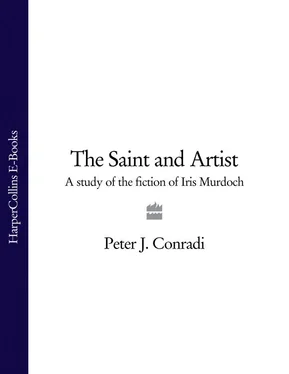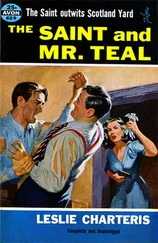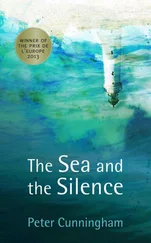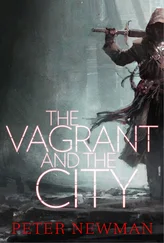Murdoch’s career strikingly belies this consoling map. She did criticise Modernism – or its symbolist legacy – in her early and influential essays, whose hostilities were very much of their time, and which have been plundered by critics for too few ideas. She did not start as a liberal and a social realist and move towards more ‘apocalyptic’ and Gothic forms. Instead she started her work with a devastating critique of liberalism which resembles a systematic purgation, and began her career as a novelist in Under the Net where others of her generation look like ending theirs, with a work which is witty and anxious about art-as-lies, but which also scorns the banal play which might have called its own illusionism into doubt. Such self-conscious play with the form, even in the later perplexing The Black Prince, is peripheral.
It might unkindly be said that liberal humanists in Britain have sometimes seemed to resemble Murdoch’s character Eric in Australia where, ever since he arrived, ‘people have disappointed me and deceived me and let me down’ ( NG 42) – either worrying away at the code like a game of Patience that seems unlikely to come out, or, in the case of the more prophetically inclined, as if it were just about to give way to some novel and more modish system of obligations whose name they were anxious to be the first to learn. For Murdoch the faults of liberalism were to a large extent the faults of existentialism. Both oppose, too simply, an innocent self to a guilty society, an inheritance they share from Romanticism. For her the question was posed not in terms of the mischievous default of history to make us secure and happy, but in terms of our own deep unacknowledged unfreedom and irrationality, our complicity in ‘lifemyths’ we unknowingly construct and live by, and our deep defencelessness, which we wrap up in various ways, to history, chance and contingency. She had of course political concerns. She campaigned among many other things against American involvement in Vietnam, and for homosexual law reform, and the novels obliquely discuss many public themes. 16 But, for her, man is not innately rational, good or free. ‘Reason’ has to be earned, unendingly struggled for, and her world is not inertly comprehensible, as in ‘naive’ realism, but inexhaustibly mysterious and energetic beyond our easy grasp. An intense lyricism about this mystery marked her out from the first. To put her critique another way: there is in her work only ever the limited, very messy, imperfect and unperfectible task of love, and its failure. Society is not merely there outside us as a system of vulgar privations. Its nastinesses begin in our heads.
In both French and English novels of the mid-twentieth century the hero can appear as a potentially absolute individual unfairly circumscribed by a world of mere types. Although Kingsley Amis’s is a comic existentialism, both Lucky Jim and Roquentin seem similarly to dramatise their predicaments as those of ‘freedoms caught in a trap’ ( SRR 36). It is the others who are irrational or falsely rational. The hero may, like Meurseult, be the only person who knows that he is powered by unreason and may thereby be ‘authentic’ in a way denied the less self-conscious; or like Bernard Sands in Angus Wilson’s Hemlock and After may have his one moment of cruelty, an aberrance that must be neutralised before it destroys him.
Murdoch attacked both ‘self-knowledge’ and ‘sincerity’ as second-rate and often delusive virtues. She argued that both French existentialism and English linguistic philosophy are heirs of Romanticism and share a common voluntarism, a romantic overemphasis on the will. Both separate the moral agent from all that surrounds him and, in speaking of the will as if it were or could easily be free, wholly ignore the personality and the huge and daunting power of its secret, fragmentary, opaque and obsessive inner life. The unenlightened self is mechanical, and escape from it is hard. ‘Self-examination’ strengthens its power. Willed acts of imaginative attention to what lies outside it can help erode it. In the important essay ‘Existentialists and Mystics’ (1970) she attacked the hero of much contemporary fiction as
the lonely brave man, defiant without optimism, proud without pretension, always an exposer of shams, whose mode of being is a deep criticism of society. He is an adventurer. He is godless. He does not suffer from guilt. He thinks of himself as free. He may have faults, he may be self-assertive or even violent, but he has sincerity and courage, and for this we forgive him…He might do anything.
She called this hero ‘existentialist’ and noted that he already looked a little out of date. He is the hero of novels by Hemingway, Lawrence, Sartre, Camus, Amis…It is typical of existentialism that it ‘either makes his responsibility absolute or abolishes it’ (Bigsby, 1982). Existentialism’s promise of total human freedom is a bogus one. Much of Murdoch’s moral psychology boils down to a criticism of the idea of fast moral change as romantic and false, and a defence of slow moral change as something difficult, piecemeal, and always incomplete.
‘Existentialists and Mystics’ is a meditation on various themes – on the existentialist novel, on the novel which contains an alternative ‘mystical’ hero, and on the place of literature in the new moral and political scene. The question of whether the present age is so wholly different from the past as to be deemed discontinuous with it is debated from various points of view. The existentialist novel tries to be cheerfully godless but abounds in a gloom which is secretly self-satisfied because, from its point of view, man is God himself. It is this which makes that novel look already old-fashioned. The mystical attitude is a ‘second thought about the matter and reflects the uneasy suspicion that perhaps after all man is not God’. ‘The existentialist novel shows us freedom and virtue as the assertion of the will. The mystical novel shows us freedom and virtue as understanding, or obedience to the Good.’ And the mystical novel (Greene, White, Bellow, Spark, Golding and by implication Murdoch herself) is the more recent development. The existentialist’s is a ‘natural mode of being of the capitalist era’. It is the mystic therefore who offers the deeper critique.
As we readily recognise and sympathise with the hero of will-power, so we can also recognise and sympathise with the mystical hero. He too is a man in tension, but here the tension is not between will and nature, but between nature and good. This is the man who has given up traditional religion but is still haunted by a sense of the reality and unity of some sort of spiritual world. The imagery here is the imagery of height and distance. Much is required of us and we are far from our goal. The virtue of the mystical hero is humility. Whereas the existentialist hero is the anxious man trying to impose or assert or find himself, the mystical hero is an anxious man trying to discipline or purge or diminish himself. The chief temptation of the former is egoism, of the latter masochism. The philosophical background or protective symbolism is fairly clear in each case. The first hero is the new version of the romantic man, the man of power, abandoned by God, struggling on bravely, sincerely and alone. This image consoles by showing us man as strong, self-reliant and uncrushable. The second hero is the new version of the man of faith, believing in goodness without religious guarantees, guilty, muddled, yet not without hope. This image consoles us by showing us man as frail, godless, and yet possessed of genuine intuitions of an authoritative good. (em)
Murdoch notes that of course no pure example of either novel, or of either hero, exists. Both existentialist and mystical heroes are marked by their apparent isolation from moral norms; both are ‘outsiders’. All novels must therefore be mixed. She also argues here for a new empirical and utilitarian political morality which starts at the level of food and shelter. It is worth noting that the essay argues for both empiricism and mysticism, which are not seen as in conflict. Unlike Bertrand Russell, who presented the classic, inadequate Western view in his significantly named ‘Mysticism and Logic’, Murdoch sees no opposition here. The mystical hero, like Tallis in A Fairly Honourable Defeat, can be fully engaged morally and politically: Tallis is engaged to the point of exhaustion. The mystic is, rather, one who has begun to grasp the absolute ‘for-nothing-ness’ and absolute lack of consolation involved in the Good. ‘Goodness is needful, one has to be good, for nothing, for immediate and obvious reasons, because somebody is hungry or somebody is crying.’ From this point of view the current demythologisation of religion is ‘a great moral tonic, because it asks the ordinary believer to do what only the exceptional one could do in the past, that is live a religious life without illusions’: that is, without any belief in the afterlife, in rewards, or in God. In one sense a truly religious life is uniquely possible without belief in God.
Читать дальше












